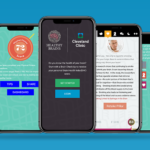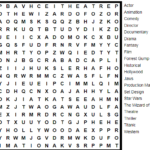 Today, it’s nearly impossible to escape technology. Smartphones and social media allow us endless access to news, work, friends and other media. Yet, constantly looking at your device does take a toll on your ability to balance stress and achieve better brain health. Without taking breaks to disconnect, you feel more stressed and anxious and this can impact sleep and relaxation, an important pillar of brain health. Here are some brain health tips for balancing the use of digital devices.
Today, it’s nearly impossible to escape technology. Smartphones and social media allow us endless access to news, work, friends and other media. Yet, constantly looking at your device does take a toll on your ability to balance stress and achieve better brain health. Without taking breaks to disconnect, you feel more stressed and anxious and this can impact sleep and relaxation, an important pillar of brain health. Here are some brain health tips for balancing the use of digital devices.
Why Logging Off Helps Brain Health
If your phone connects to your work email, you’re more likely to keep checking it after you’ve left your job. Distancing yourself from working after hours is necessary for better brain health. “Being able to disconnect and be unavailable to the boss once in awhile is good for the brain,” says psychologist Joseph Rock, PsyD from Cleveland Clinic Center of Behavioral Health. “This feeling of always having to be quick to respond diminishes your ability to calm down and relax at the end of the day, which can take a toll on your state of mind.”
Some brain health tips for using digital devices:
- Promote sleep, relaxation and quality family time by putting away your cell phone, laptop or tablet before dinner and at least an hour before you go to sleep.
- If you have a hard time falling asleep, try reading a book or magazine instead of your phone.
- Kids too! Teens tend to be “night owls” and cellphone use at night has been linked to teen insomnia along with other health problems.
- Relax. Shut down your device to help shut down your brain. Make an effort to truly put tasks and responsibilities to the back of your mind and enjoy the rest of your day when you leave work. This gives your brain a break, lowering stress and anxiety.
At the end of the day, there’s always work to do or something to read on your electronic device. Your brain health however is more important than answering an email that can wait until tomorrow morning or interrupting a good night’s sleep from the constant glow and activity of a digital device.
Want more brain health tips? Complete your Brain Health check-up and sign up for our monthly Healthy Brains newsletter.









